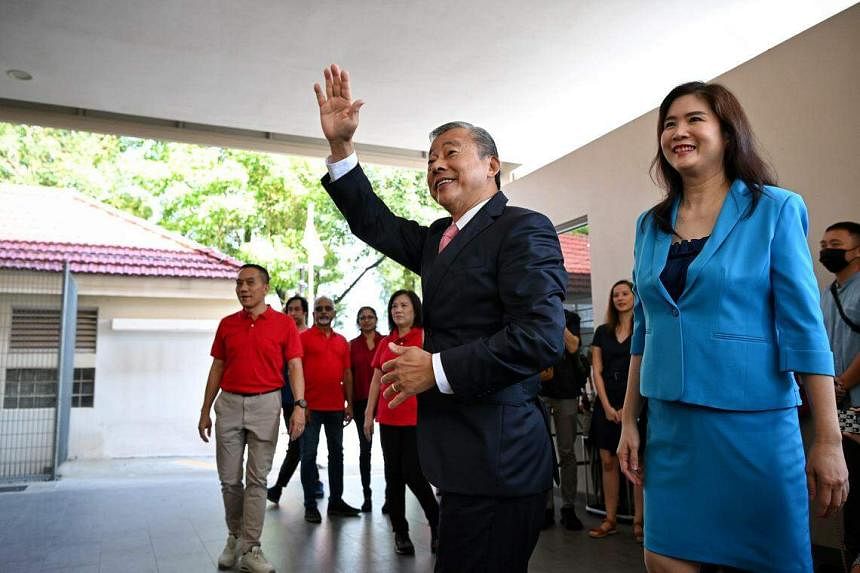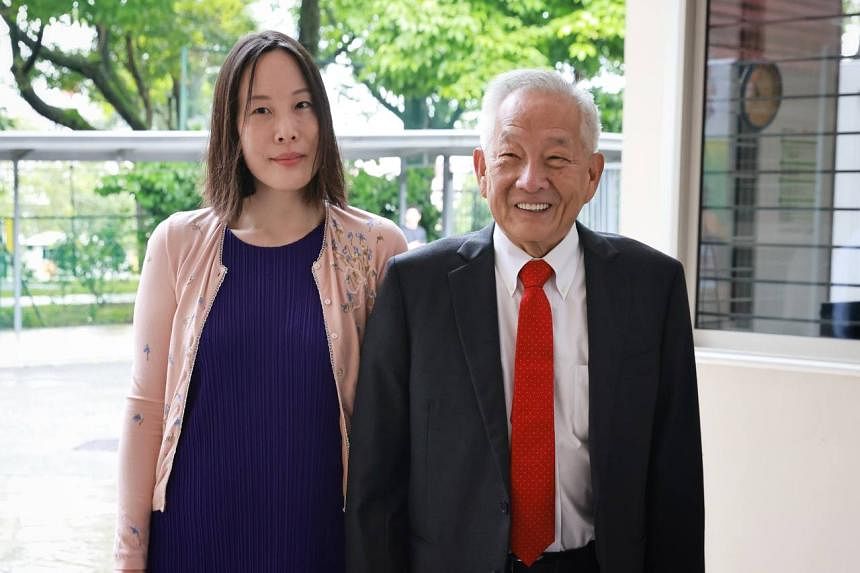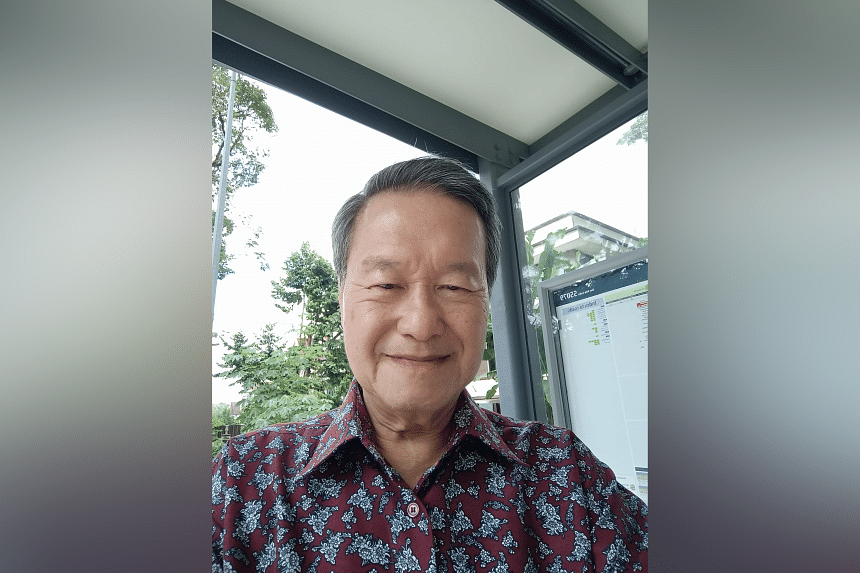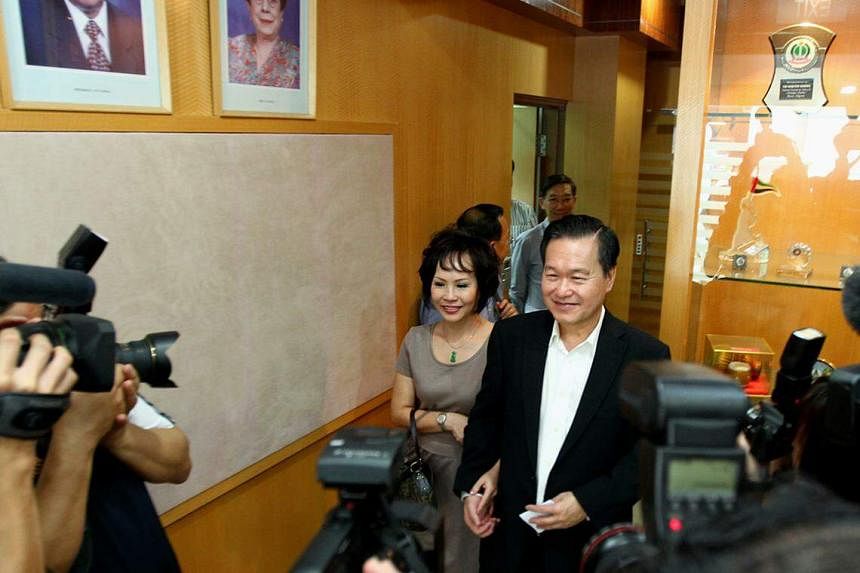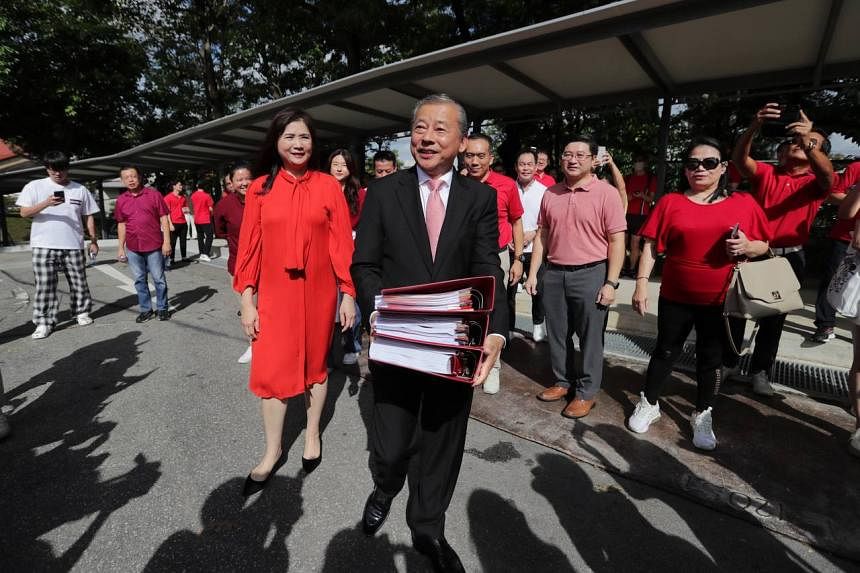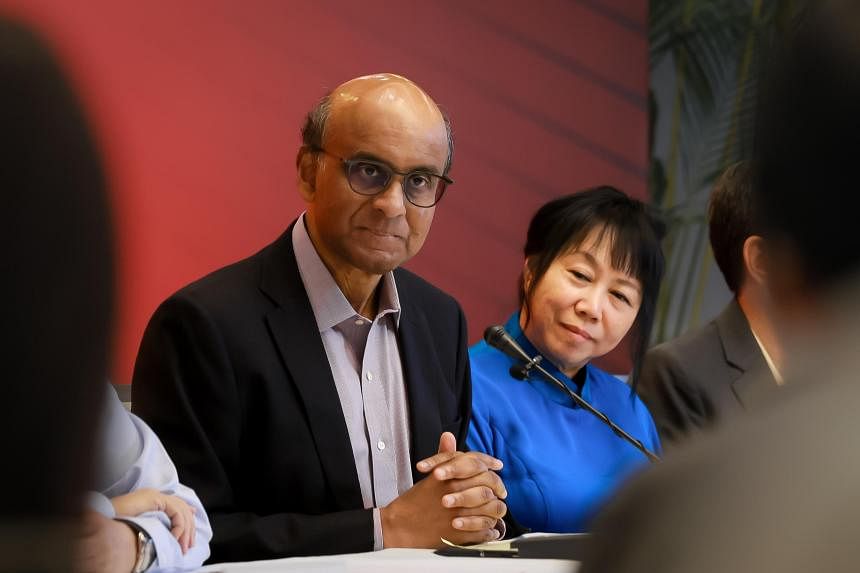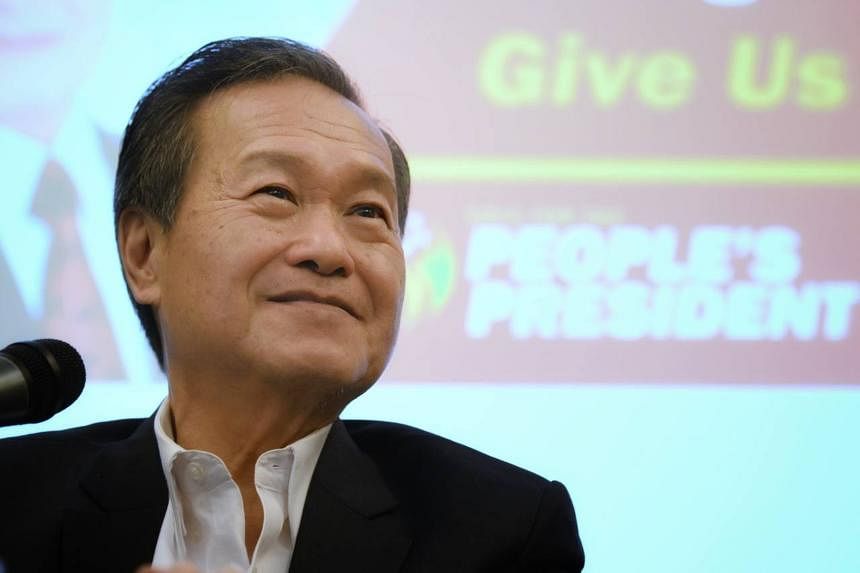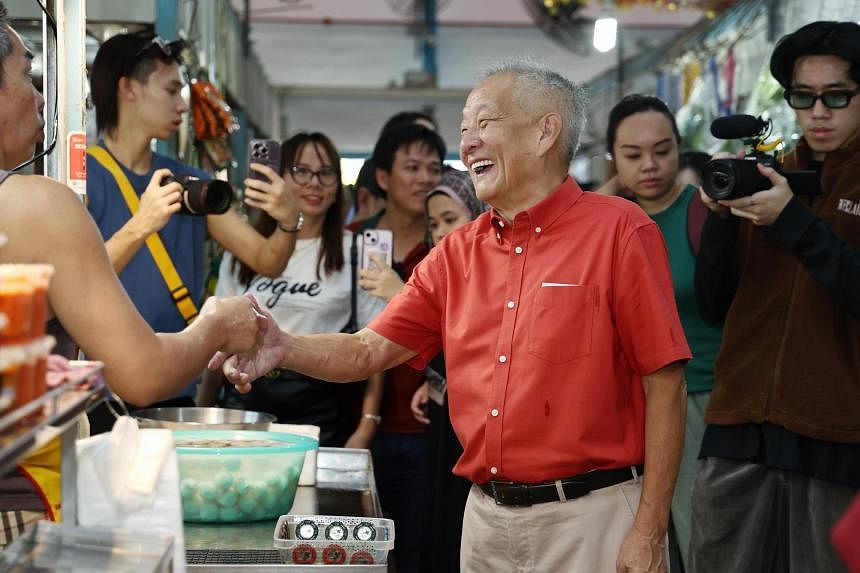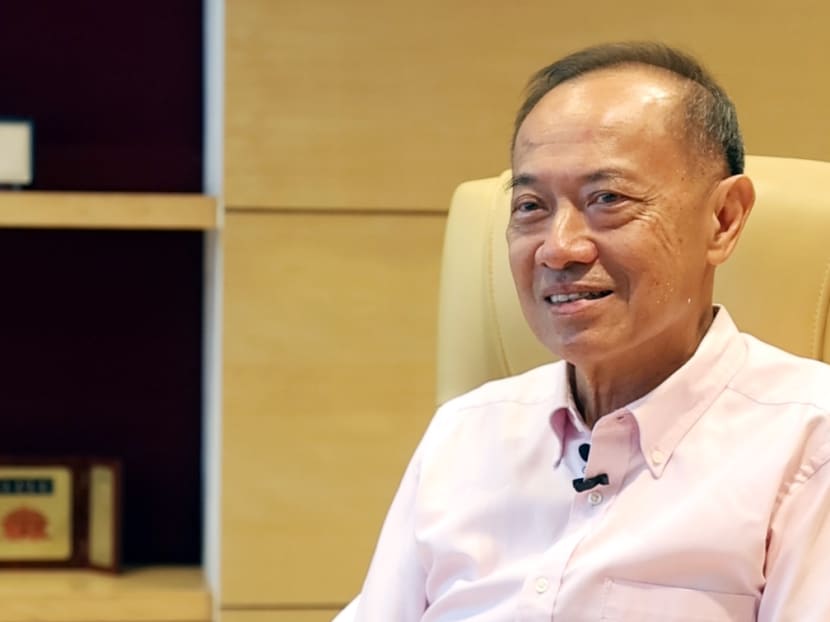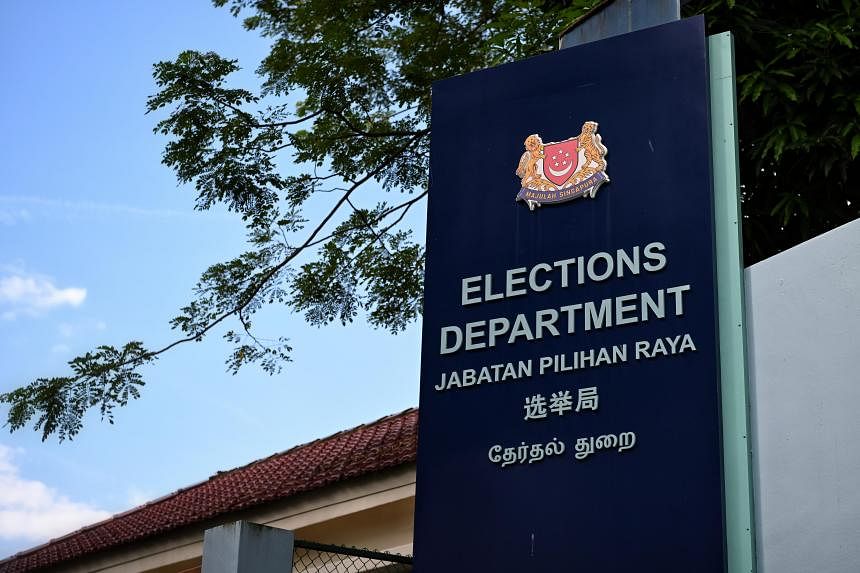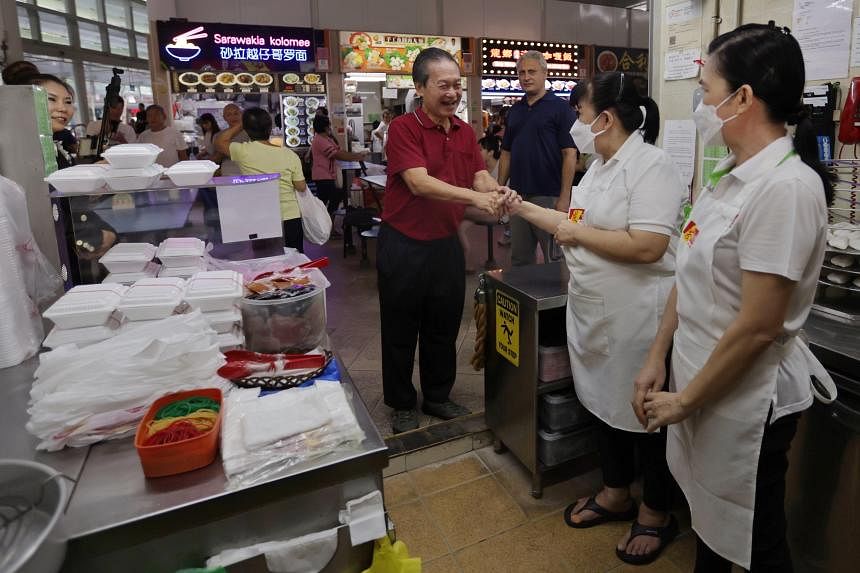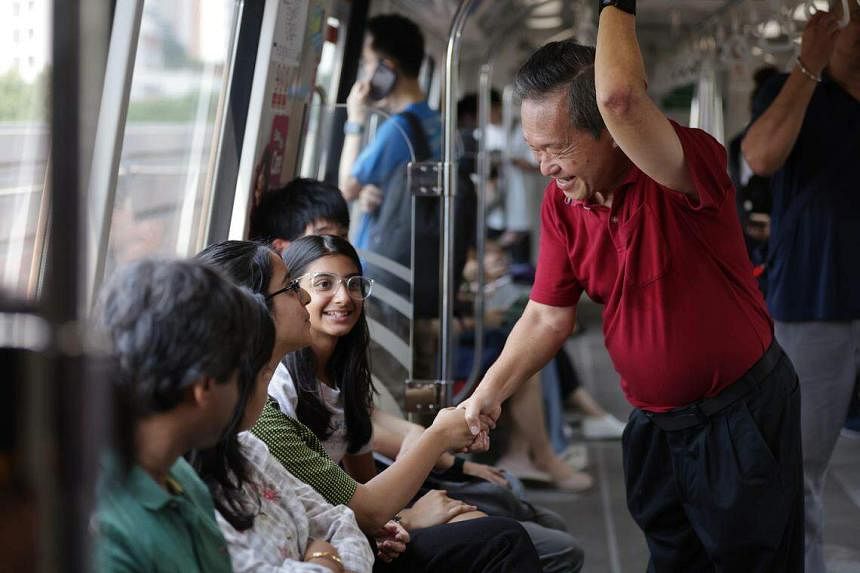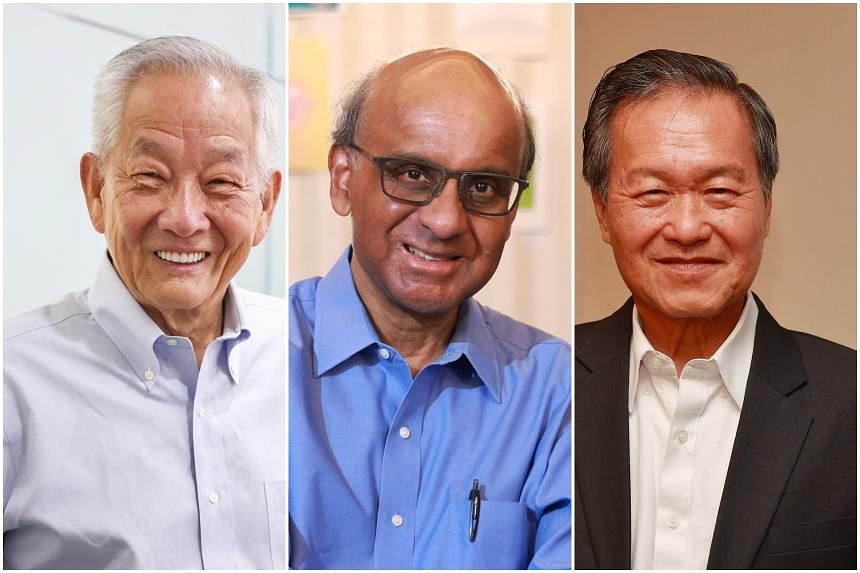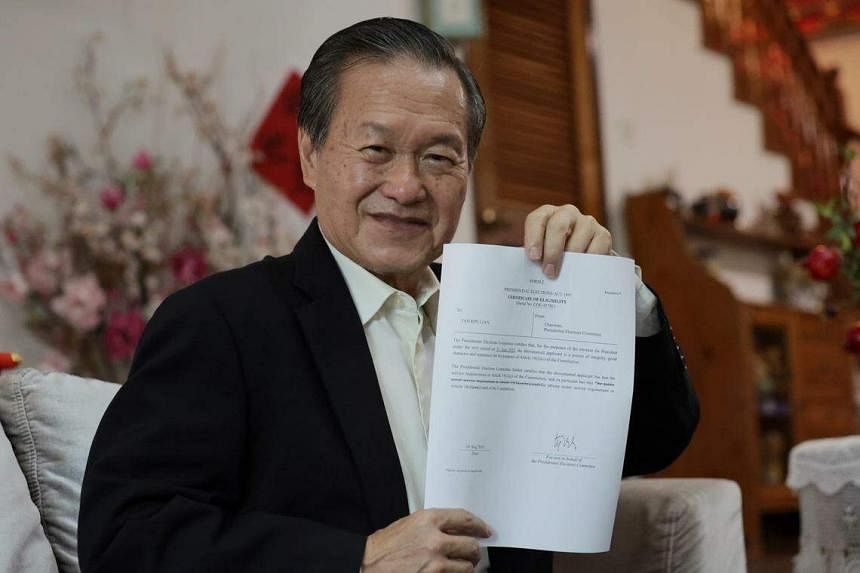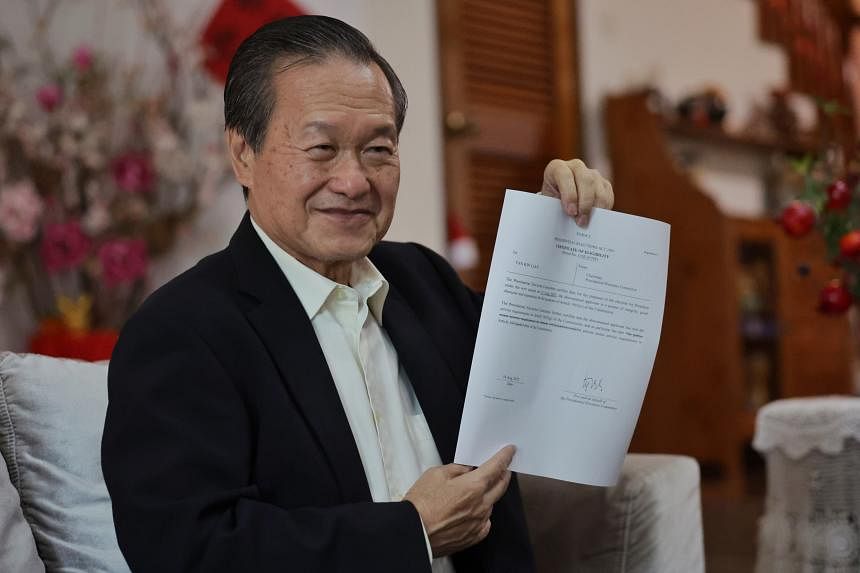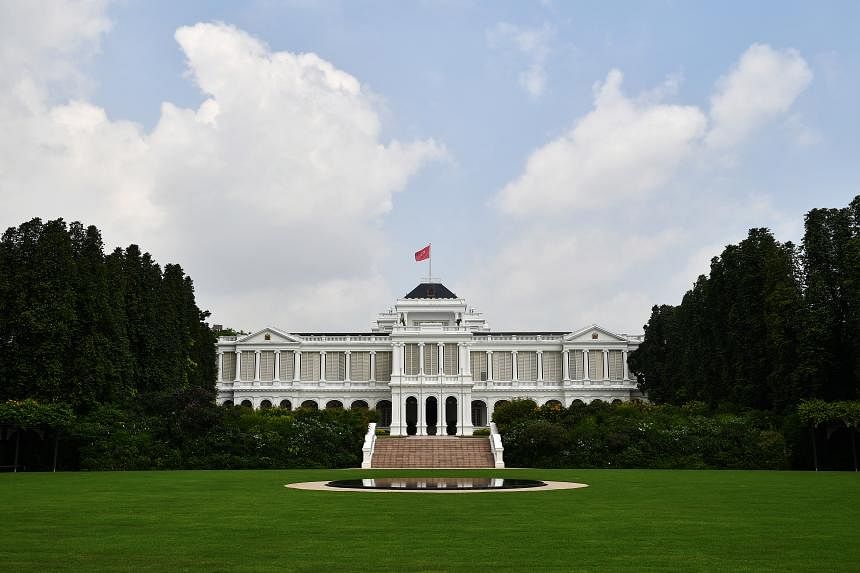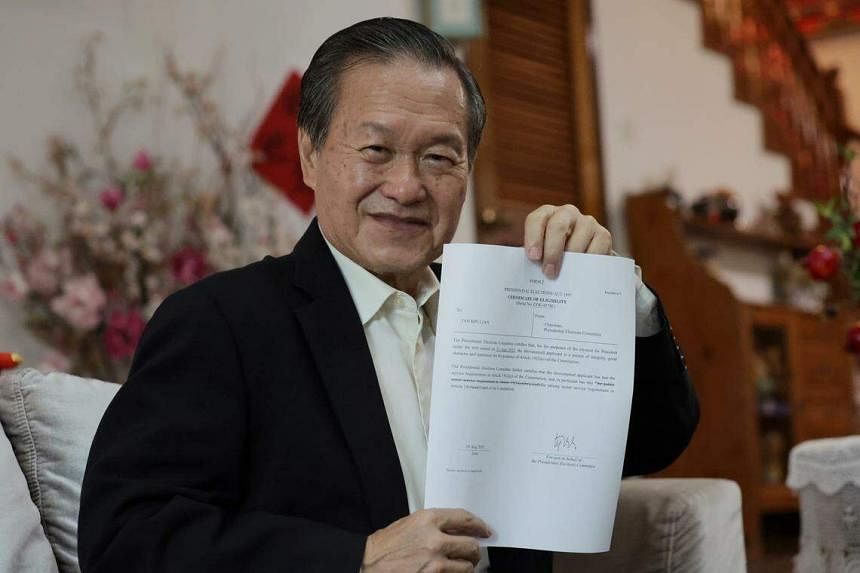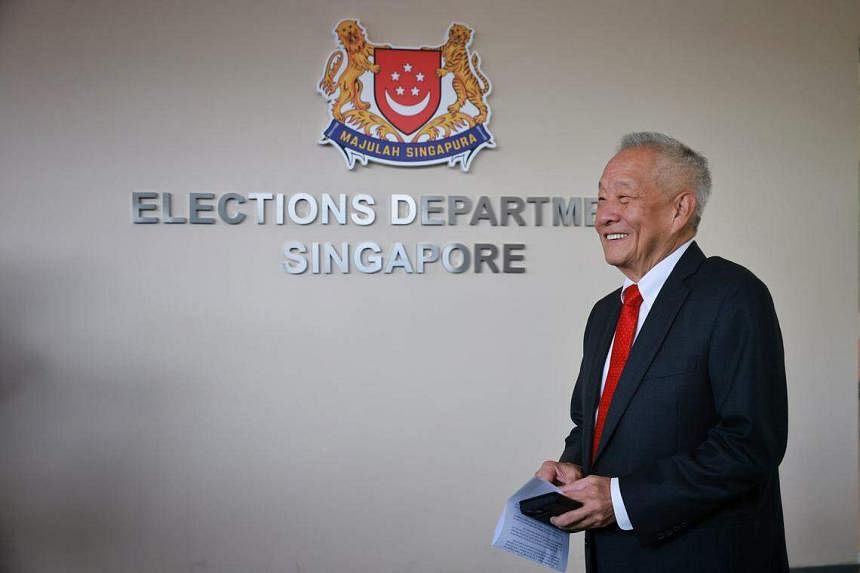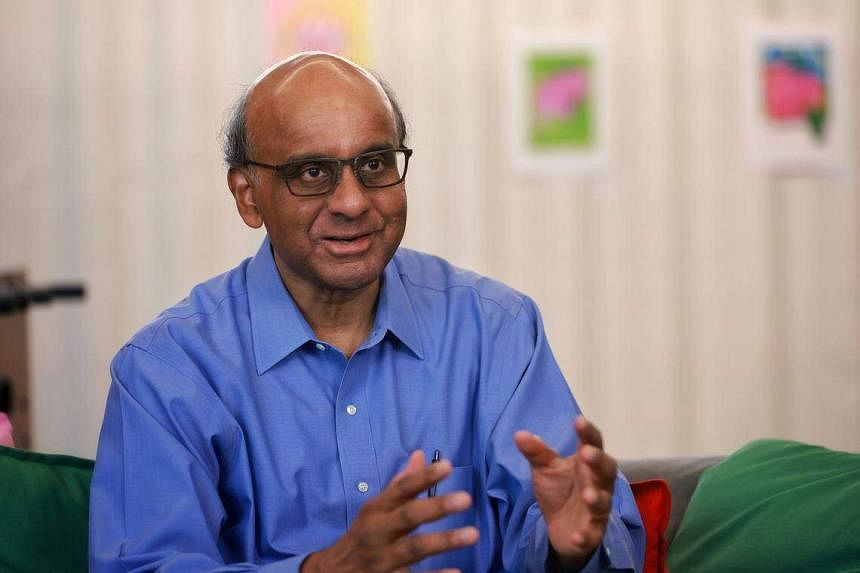Vote splitter confirms he is on.
Tan Kin Lian, former NTUC Income chief executive, launches presidential bid
Mr Tan Kin Lian launching his presidential bid with the theme “Bring Back Trust, Give Us Hope” on Aug 11, 2023. ST PHOTO: CHONG JUN LIANG
Goh Yan Han
Political Correspondent
August 11, 2023
SINGAPORE -
Presidential hopeful Tan Kin Lian intends to “play an active role” in carrying out the two key duties of the president, which he said are the use and investment of the reserves, and to approve the recommendations of persons to be appointed to the top levels of the public service.
Beyond these two constitutional duties, Mr Tan, 75, said he has a vision to use the president’s office to influence policies that would make life better for the people of Singapore.
Mr Tan, who was chief executive of NTUC Income from 1977 to 2007, launched his bid with the theme of “Bring Back Trust, Give Us Hope” on Friday at a press conference at Copthorne King’s Hotel.
He also introduced his proposer, Mr Tan Jee Say. Both men had contested in the 2011 presidential election.
He introduced his seconder, Mr Lim Tean, who is founder of political party People’s Voice (PV). Mr Prabu Ramachandran, a former candidate from PV at the 2020 General Election, was introduced as the principal election agent.
Mr Tan was accompanied by his wife, Madam Tay Siew Hong, 67.
Noting that Singapore’s sovereign funds had made losses in the past year, Mr Tan said it should be accepted that the market values of investments will fluctuate from year to year according to the underlying conditions of the global economy.
“We should not judge the performance of the past year with the benefit of hindsight and with inadequate knowledge of the actual conditions that influence the investment decisions,” he said.
He added that there are valuable lessons to be learnt from the recent experience to make better policy and operating decisions in the future.
“The actual monitoring will be the duty of the board of directors, but they will receive my advice and guidance on the approach to be taken,” Mr Tan said.
He intends to work with the Government to ensure that the past reserves are used wisely for the benefit of current and future generations.
Apart from managing the reserves, Mr Tan said the second key duty he intends to carry out would be to ensure that the right people are at the top levels of the public service.
“I believe that the active involvement of the president and a new direction are necessary to give a new vigour to our governance,” said Mr Tan.
Using presidential office to influence policy
Beyond his constitutional duties, Mr Tan said that as president, he would focus on three fundamental areas crucial to the well-being of citizens: bringing down the cost of living, ensuring affordable housing for all and securing jobs.
“Now, I must clarify that I don’t intend to be an adversary to the elected Government. On the contrary, I hope to work in collaboration with the Government to achieve the goals stated above,” he said.
Mr Tan said his vision was to build a nation where people are united and live in harmony.
“I believe the people (are more) united when they feel financially secure and are able to look beyond their immediate concerns and think about the greater good of our society,” he said.
“This was a spirit of unity and pride that Singaporeans felt 50 years ago. We need to rekindle that spirit.”
Mr Tan had announced in end-July that he had submitted his application for a certificate of eligibility earlier for the upcoming presidential election, but had not decided if he would contest.
In a statement, Mr Tan said then that he would wait for the Presidential Elections Committee (PEC) to confirm the candidates before he decided whether to proceed on Nomination Day.
Mr Tan is the fourth potential candidate to put himself forward for the presidency, after former senior minister Tharman Shanmugaratnam, entrepreneur George Goh and former GIC investment chief Ng Kok Song had announced their intentions.
“I ask for the support of the people of Singapore to give me a strong mandate, so that I can provide an independent perspective and act in collaboration with the ruling Government to deal with the challenges of the future,” said Mr Tan.
Mr Tan said he had been prepared to stand aside when Mr Goh expressed interest in the presidency, as he thought Mr Goh would be an independent person.
He said: “I want to be quite honest, the other candidate Mr George Goh, I have high respect for him. I have high respect for his enthusiasm, and his team.”
But later, when comments that Mr Goh might not qualify came up, and Mr Ng came into the fray, Mr Tan said he wanted to offer a chance for Singaporeans to vote for someone independent.
When asked how he would compete against Mr Tharman, Mr Tan said Mr Tharman is highly respected and well-known, both locally and internationally, but has negative aspects, including his background as a member of the People’s Action Party (PAP).
“I’m confident that I can give it a very good fight, because the people want to have an independent president,” he said.
Former opponent turns supporter
His proposer, former presidential candidate Tan Jee Say, said it showed courage that Mr Tan Kin Lian, who lost his deposit in the 2011 presidential election, has once again placed himself at the mercy of the voters.
Mr Tan Kin Lian took 4.91 per cent of the votes at the contest 12 years ago.
Mr Tan Jee Say noted that at the moment, there is some doubt on whether there will even be an election.
Mr Tan Kin Lian (right) and his proposer, Mr Tan Jee Say, at a press conference on Aug 11, 2023. Both ran in the 2011 presidential election. ST PHOTO: CHONG JUN LIANG
He claimed that currently, Mr Tan Kin Lian is the only presidential hopeful who meets the $500 million shareholder equity requirement.
Of the other three presidential hopefuls, only Mr Tharman automatically qualifies. Both Mr Goh and Mr Ng will be applying under the deliberative tracks, which will depend on the PEC’s discretion.
“So with his entry, there will be no walkover and there will be a contest – something I believe Singaporeans want to see,” said the founder of the now-defunct opposition party Singaporeans First.
Mr Tan Jee Say said he was sure that if elected as president, Mr Tan Kin Lian would do a “fresh and thorough review” with officials from the Monetary Authority of Singapore and guide them on the appropriate level of reserves to put aside to defend the Singapore dollar and for other emergency needs.
“If we do not need too much (of the reserves) to do so, the president will give us hope that he will not stand in the way of the Government if it decides to use more of the reserves to help the people.
“This would be a proper and legitimate use of our reserves and should not be misconstrued as a raid on our reserves,” he said.
Asked why he chose to support Mr Tan Kin Lian instead of running again when he had performed better at the last presidential election, Mr Tan Jee Say said the revised eligibility criteria after the last race had ruled him out.
Mr Tan Jee Say had garnered 25.04 per cent of the votes in 2011.
Mr Tan Kin Lian is “very confident” that he will perform much better this round “because Tan Jee Say’s supporters will be behind me, and he has a big following”.
Mr Tan said his vision was to build a nation where people are united and live in harmony. ST PHOTO: CHONG JUN LIANG
Mr Lim, the PV chief, said many Singaporeans are disillusioned by the walkovers of past presidential elections, as there had been only two contests in the 30-year history of the elected presidency.
As such, the candidacy of a “truly independent candidate, such as Mr Tan, with absolutely no links to the Government or government-linked entities, and who meets the strict qualifying criteria for president” will help Singaporeans regain trust in public institutions, he said.
Mr Lim acknowledged that critics have said Mr Tan does not understand the limited powers of the presidency, and that the president has no executive powers.
“But these critics fail to recognise the broader constitutional duty which the president has, which is to look after the welfare of Singaporeans,” he said.
If elected, Mr Tan will be able to leverage the mandate he received from the people, and the prestige of the office, to advise the Government of his views on government policies and how they are affecting the people, said Mr Lim.
‘I hope 2023 will be my time’
Mr Tan Kin Lian was asked about his pitch of being independent, given that he was a PAP member years ago.
He replied that he was very proud to have helped the PAP in the past, when it was very clear that it had the support of a large part of the population.
“The PAP today is quite different, I think many people feel that they are more towards the elite and not towards the ordinary people.”
This was why he left the PAP 15 years ago, he said.
When asked about his comments in a June 2023 online article, where he had said the office of the presidency was “unnecessary” and “wasteful”, among other comments, Mr Tan said he had since changed his view.
“Because I now find that even within the existing powers of the president in the Constitution, there is a lot that I can do,” he said.
“So because of this, I’ve now changed my view and I believe that the president can do something useful. And it will be for the people of Singapore to decide.”
Noting that 2011 “was not my time”, Mr Tan said this time he has the support of a very capable team who is able to mobilise the ground and, as such, he hopes 2023 will be his moment.
“Of course… we still have to work hard,” he said.
Mr Allan Yeo Gim Beng, a businessman who will be one of Mr Tan’s assenters, was also at the press conference. Mr Prabu, the principal election agent and who works in the financial sector, and Mr Leong Sze Hian, a blogger who moderated Friday’s event, will also be assenters.
